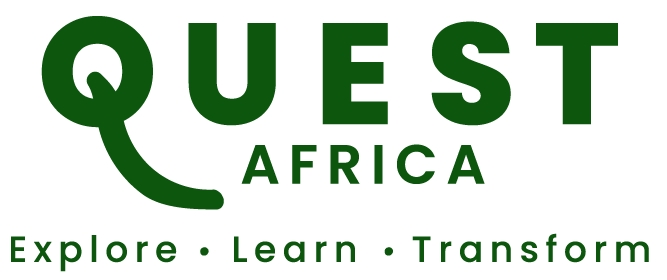-
- Introduction
At Quest Africa, we are deeply committed to safeguarding the welfare and rights of all children who engage with our programs, whether they are traveling with families, attending as part of a school initiative, or benefiting from our community impact efforts. This policy outlines our commitment to ensuring a safe and protective environment for children, in alignment with global child protection standards and local laws.
- Policy Statement
Quest Africa believes that:
- Every child has the right to safety and protection from all forms of harm, abuse, neglect, and exploitation.
- Creating a child-safe environment is the shared responsibility of all staff, participants, and partners.
- Community impact programs must prioritize the dignity and best interests of children in all interactions and engagements.
This policy applies to all children under the age of 18 who interact with Quest Africa programs, either directly or indirectly.
- Objectives
The objectives of this policy are to:
- Prevent harm to children through robust safeguarding measures.
- Promote awareness of child protection issues among staff, participants, and partners.
- Respond effectively to any incidents or concerns involving the safety and well-being of children.
- Uphold compliance with local, national, and international child protection laws and standards.
- Scope
This policy applies to:
- Children: Under 18 years old, whether as travelers, students, or beneficiaries of community impact projects.
- Staff and Volunteers: Full-time, part-time, contractors, and interns.
- Participants: Families, individual travelers, and groups engaging in Quest Africa programs.
- Community Partners: Local organizations, service providers, and host communities.
- Key Principles
5.1 Best Interests of the Child
- Decisions affecting children will always prioritize their physical, emotional, and psychological well-being.
5.2 Zero Tolerance for Abuse
- Quest Africa maintains a zero-tolerance approach to any form of child abuse, neglect, or exploitation.
5.3 Informed Consent
- Informed consent from parents or legal guardians is required for all child-related activities, including photography or media use.
5.4 Respect for Cultural Contexts
- While respecting local cultural norms, child protection standards will never be compromised.
5.5 Accountability
- All staff, participants, and partners are accountable for adhering to this policy and reporting any violations.
- Child Protection Standards
6.1 Recruitment and Screening
- Background Checks: All staff and volunteers must undergo criminal background checks before working with children.
- Reference Verification: Conduct thorough reference checks for positions involving direct interaction with children.
- Training: Mandatory child protection training for all staff, participants, and partners.
6.2 Safe Practices for Interactions with Children
- Appropriate Behavior: Staff and participants must:
- Use positive, non-violent communication with children.
- Avoid physical punishment, inappropriate physical contact, or discriminatory language.
- Never be alone with a child in a private space.
- Photography and Media:
- Obtain prior written consent from parents/guardians before photographing children.
- Avoid sharing identifiable images of children on public platforms without consent.
6.3 Safety Measures During Activities
- Supervision: Maintain appropriate adult-to-child ratios during all activities.
- Risk Assessments: Conduct risk assessments for child-focused activities to identify and mitigate potential hazards.
- Emergency Preparedness: Ensure clear procedures are in place for responding to medical emergencies or safety incidents involving children.
6.4 Reporting and Responding to Concerns
- Mandatory Reporting: All staff and participants are required to report concerns or suspicions of child abuse immediately.
- Confidential Reporting Channels: Provide secure, confidential ways for reporting child protection concerns.
- Swift Action: All reported incidents will be investigated promptly and thoroughly by trained personnel.
- Roles and Responsibilities
7.1 Organizational Leadership
- Ensure the implementation of this policy across all programs.
- Allocate resources for training, monitoring, and evaluation of child protection measures.
7.2 Staff and Volunteers
- Adhere to child protection policies and guidelines.
- Report concerns or violations without delay.
7.3 Participants
- Act in a manner that safeguards children during all program interactions.
- Avoid unsupervised or unauthorized contact with children.
7.4 Community Partners
- Collaborate to ensure child-safe practices in community impact programs.
- Abide by Quest Africa’s child protection standards.
- Monitoring and Evaluation
- Regular Audits: Conduct periodic reviews of child protection practices across all programs.
- Feedback Mechanisms: Collect input from children, parents, staff, and community partners to improve policies and practices.
- Policy Updates: Revise this policy annually or as needed to reflect evolving best practices and legal requirements.
- Non-Compliance and Disciplinary Measures
Failure to comply with this policy will result in:
- Immediate suspension or termination of employment, volunteer, or participation agreements.
- Reporting of violations to relevant authorities for legal action, where applicable.
- Compliance with Laws and Standards
Quest Africa aligns with:
- United Nations Convention on the Rights of the Child (UNCRC).
- International Labour Organization (ILO) Conventions on Child Protection.
- National Child Protection Laws in all countries of operation.
- Reporting Procedures
- Immediate Action: If a child is in immediate danger, contact local authorities and emergency services.
- Incident Reporting:
- Fill out a confidential incident report form.
- Submit the report to the designated Child Protection Officer within 24 hours.
- Investigation and Support:
- An internal investigation will be conducted by a trained child protection team.
- Offer counseling and support to affected children and families.
Quest Africa is unwavering in its commitment to safeguarding the welfare of all children connected to our programs. Through this policy, we aim to foster a safe, respectful, and nurturing environment that protects children’s rights while creating transformative experiences for participants and communities.

